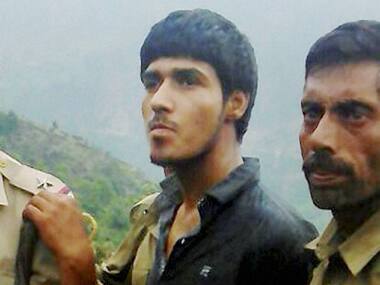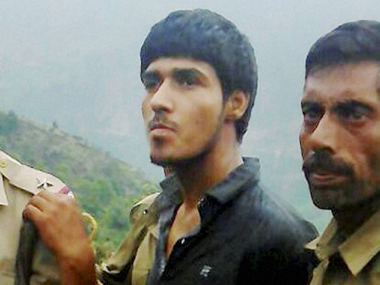Back-to-back terrorist attacks in Udhampur district of Jammu and Kashmir have reconfirmed Pakistan’s agenda of exporting terrorism to India. The real worry for security agencies, however, is to find out whether Pakistan-based terrorist groups have entrenched themselves deep in the state, with the capacity to activate sleeper modules at will. Are all the terrorists from Pakistan? The Gurdaspur attack and the recent nabbing of Usman Khan in Udhampur have proved that terrorists across the border planned and infiltrated into India over a period of time and unleashed attacks. But in all likelihood, local terrorists have been playing a supportive role in these attacks. Counter-terrorism experts said that home-grown terrorists, who are strongly indoctrinated, can’t be ignored. Security analyst Col (retd) Jaibans Singh says, “There’s a clear involvement of local terrorists. It can be surmised that they are, from within the cadre local as well as foreign, already operating in the state. There are two reasons for this assessment. First of all, it is improbable that a newly infiltrated group would succeed in reaching up to the Highway at Udhampur without detection. Secondly, no new case of infiltration has been reported for quite some time. There is a widespread perception that terrorism in Jammu and Kashmir is witnessing a shift with newly indoctrinated local youth joining the terrorist cadre in large numbers.” [caption id=“attachment_2383114” align=“alignleft” width=“380” class=" “]  Terrorist who was captured in Udhampur. PTI[/caption] A reported census carried out by the Jammu and Kashmir Police has indicated that 62% of the terrorists now operating in the Valley are local youth. “The role of local terrorists can’t be ignored because without their assistance and logistical support, the militants from Pakistan can’t survive for so many days on Indian soil. The terrorists already have modules across the country, be it in Kashmir, Assam, Maharashtra or in Kerala, through which they operate. It is not possible for a Usman to reach the highway in Udhampur on his own and kill a BSF personnel. Even the Gurdaspur attack and the fixing of an IED on a railway track is not possible without the help of local militants,” said counter-terrorism analyst, Anil Kamboj. Why a sudden spurt in terror attacks? According to the intelligence sources and security analysts, Pakistan wants to spread hysteria in India ahead of the Independence Day and during the ongoing Amarnath Yatra. Anil Kamboj said, “Both, Pakistan’s army and ISI want that the NSA-level talks between India and Pakistan as agreed by the prime ministers of the two nations should fail. Whenever, there had been any attempt of peace talks between India and Pakistan, the latter had always resorted to such nefarious activities on Indian soil to jeopardise the peace process. The Pak PM has to dance to the tunes of ISI and army for his survival.” “Pakistan doesn’t lose any opportunity to export terrorism to India. It’s a 24x7 occupation for them – when it’s not in J&K, it’s in Punjab or elsewhere,” Singh points out. The intelligence agencies are not ruling out the option that it could also be a diversion tactic of the militants to strike elsewhere on a bigger scale. What the government needs to do? Besides combating Pakistan-based terror operatives, defanging the local terrorists is a major challenge for the government. Former BSF chief, Prakash Singh said, “Pakistan’s army always wanted the peace process to get scuttled; so they keep the pot boiling by creating disturbances across the border and inside India. To counter local terrorists, it’s important for the government to strengthen the police, which otherwise is in poor state. For better results in dealing with terrorism, local support from state police is must for the security forces like BSF, CRPF, etc. In the Gurdaspur incident, though the Punjab police commandos got result, there was complacency in them.” “Radicalization of local youth poses the biggest challenge today and if not checked in time, can have serious politico-security consequences. Both, the states and the central governments need to take corrective measures to ensure that radicalization process of youth is controlled forthwith,” Jaibans Singh added.
Back-to-back terrorist attacks in Udhampur district of Jammu and Kashmir have reconfirmed Pakistan’s agenda of exporting terrorism to India.
Advertisement
End of Article


)

)
)
)
)
)
)
)
)



